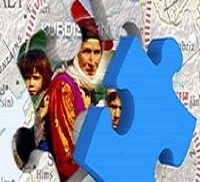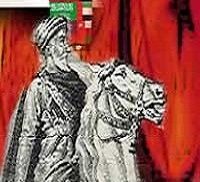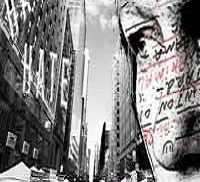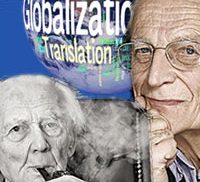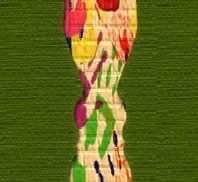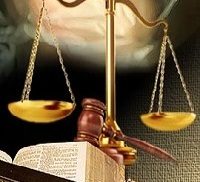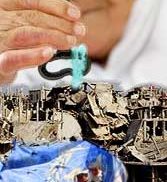This dossier stems from the debate sparked by Elizabeth Suzanne Kassab’s article—which opens this collection—on the transformation of the Arab intellectual scene after 2011. Her notion of a “new contemporary” in Arab thought prompted a series of contributions that do not aim to offer solutions, but rather to raise new questions, probe unresolved issues, and put forward critical perspectives. Bringing together Kassab’s essay and two related pieces, the dossier explores how Arab thought is redefining itself in light of the uprisings, the failures of political transitions, and the moral and intellectual rupture marked by Gaza.
Dossiers
- With three essays from our Istanbul Seminars, Resetdoc carries on the debate on viable models for the coexistence of diversity. We believe that philosophical reflection on this topic is most helpful if developed before the trap of resentment and retaliation is cocked, let alone set off. Beate Roessler’s article addresses the fundamental problem for intercultural relations of how to conceive that flourishing of a culture (and persons within a culture) which then specific legal provisions or administrative policies may enhance or stifle. David Rasmussen revisits the notion of the political, while Fuat Keyman addresses these issues with reference to the centrality of the ‘Kurdish Question’ for the consolidation of Turkish Democracy.
- The wave of ‘Arab Springs’ that has resulted in political and social upheaval in most of the Arab World does not appear to have reached Saudi Arabia, the stronghold of Wahabi Islam and one of the richest conservative countries in the Middle East. And yet, there, members of civil society and activists have been fighting in the shadows for years to achieve change and rights for citizens, women and minorities. Their story is told by Liisa Liimatainen, a Finnish journalist and political analyst who has devoted years of research to Saudi Arabia and also wrote the book Saudi Arabia’s other face: brave women and cyber-youth, soon to be published in Finland.
- With this summer issue of its Essays collection, Resetdoc presents to its readers the research and thoughts of three prominent intellectuals on the political transformations experienced by Islam and its numerous interlocutors throughout history up to present time. Akeel Bilgrami focuses on the internal flaws of popular and pundit-instigated perspectives of the relationship between Western and Islamic public opinion as a ‘clash’ or a ‘conflict’, while José Casanova draws our attention to a fundamental difference between anti-Islamic xenophobia that is widespread in contemporary Europe and its counterpart in the U.S. Zaid Eyadat’s article analyses the constant presence of dialogue within the history of Islam and the ensuing exchange with Western culture.
- Philosophical reflection on viable models for the coexistence of diversity is most helpful if developed before the trap of resentment and retaliation is cocked, let alone set off. A workable scheme for the cooperation of free and equal citizens affiliated with diverse and often rival cultural heritages can go a long way toward preventing resentment and the politics of fear from coming into being and gaining ground in the first place. Received models in this respect, however, need a constant updating and finetuning. Resetdoc wants to address this concern in a new chapter of its Essays-series.
- How do we defuse the perverse circle of mutual unfamiliarity and estrangement breeding difference, misrecognition, then resentment not just for the political initiative of ‘the other’ but for its very existence, then outward hostility and confrontation, then retaliation and consequently an ever increased estrangement? Resetdoc believes that political imagination and democratic forces need to be mobilized in order to break out of the trap of reciprocal rejection or misrecognition and the spiraling of negative feelings and to set a virtuous circle of understanding and trust across cultural, ideological and religious divides.
- Today more than ever, cultural, religious, ethnic and linguistic pluralism is a fact of life in European societies. Resetdoc believes that a great deal more work is still required in order to enable our liberal and democratic institutions to acknowledge this fact when implementing integration policies, not only to avoid the existing risks of exclusion and conflict, but also to counter cultural, biological and ideological generalizations that afflict the daily political debate and nourish the rhetoric of populist and xenophobic politicians. For our Essays series, Alain Touraine and Zygmunt Bauman explain why this necessary reconfiguration of politics could start with a new understanding and an broader concept of identity and citizenship.
- The wave of liberalisation brought on by the Arab Spring is accompanied by the political victory of Islamist groups who have proven their capacity of mobilisation. This religious-political irruption into public space is not failing to worry certain social strata, women in particular. In this context Iqbal al Gharbi’s article focuses on the relationship between women’s rights and Islam and on the latter’s capacity to integrate female citizenship into the heart of religious reformism.
- For our Essays series, Maeve Cooke and Sebastiano Maffettone discuss the philosophical-political tools required by liberalism in order to address the challenge posed by pluralism: openness to inclusive citizenship, a dialogue between cultures and governing fear in post-secular society. Cooke critically reanalyzes the Habermasian perspective presenting us with a more precise consideration of the burden posed by “translation” within the framework of an intercultural dialogue, while Maffettone addresses the nihilist consequences of post-modernism that make “impossible the construction of a post-colonial discourse through which discontent is transformed into a basis for a reasonable political action.” Earlier versions of both articles were presented at Istanbul Seminars 2010.
- “Cultural pluralism” is a recent concept in Europe to the extent that many do not know what it means. While political pluralism and freedom of thought are deeply-rooted in our continent, and everyone is capable of distinguishing a democratic regime from one that is not, there are some extremely extravagant and vague opinions concerning pluralism of cultures and the relationship between the various religious, linguistic and ethnic cultures. Intellectuals and scholars from all over the world are helping Reset-DoC and its Intercultural Lexicon project to foster cultural pluralism with their contributions to our publications, debates and public conferences. Today, Anthony Appiah from Princeton explains what the evolution of honor codes can mean to cross-cultural understanding.
- The hard daily lives of Palestinian refugees remain stuck between the impossibility to return to their homeland and the difficulties presented by naturalization: all Arab countries oppose it for political reasons and the West is criticized for understanding any new citizenship as a renouncement to the right of return. And today, in the face of a new exodus from Syria, the assistance of Palestinian refugees is in the hands of a neglected UN agency, sidelined by the marginalization of the only UN-sanctioned route to improve their conditions: the right to return to Palestine. Andrea Glioti for Reset-DoC.



